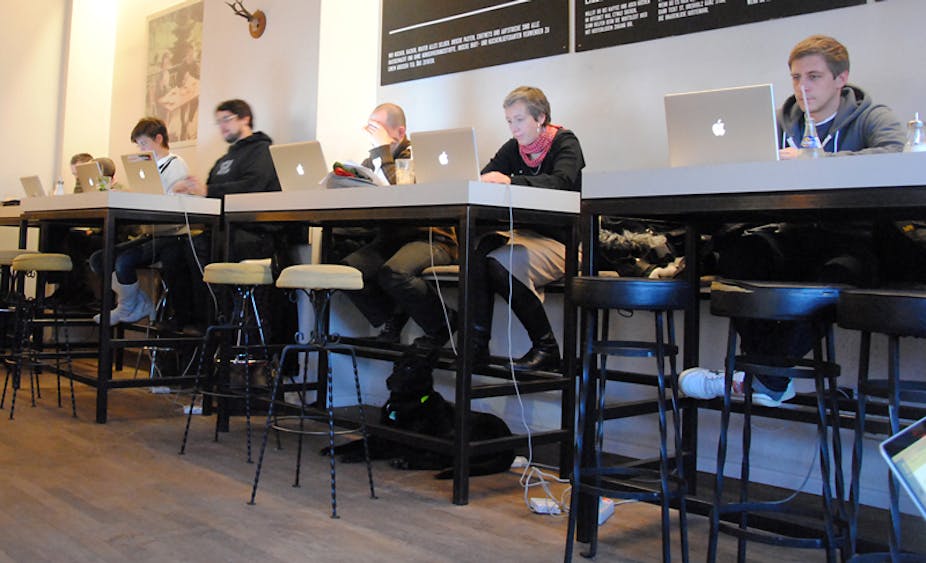General Comment No. 34 on Article 19 of the Universal Declaration of Human Rights may sound like something from a bureaucratic nightmare, but it drags your right to freedom of expression into the digital era. It marks the United Nations’ first foray into this thorny issue in the new media environment.
Article 19 states: “Everyone has the right to freedom of opinion and expression; this right includes the freedom to hold opinions without interference and to seek, receive and impart information and ideas through any media regardless of frontiers.”
The challenge with universal rights is how to make them work in particular historical, political, social and cultural contexts. This challenge is all the more acute when it comes to articulating rights related directly to a dynamic and contingent social process like communication.
The development of Article 19 has provoked much debate on how to guarantee freedom of opinion and expression, what limitations are appropriate, and also whether the right implies other rights like to information and knowledge, and to access and participation in communicative practices.
Freedom in a digital era
Much will be made of General Comment No. 34’s particular statements about the scope and nature of the legitimate restrictions states can employ on freedom of opinion and expression. Also of interest is what it contributes to the debate about communication rights in the interactive era.
The General Comment directs states to:
Take account of the extent to which interactive and electronic media have changed communication practices.
Recognise a global network enabling the exchange of ideas and information outside of traditional mass media intermediaries.
Only restrict specific content rather than generic sites or platforms (like a website, blog or internet service provider).
Not restrict content solely because it is critical of a government or political system.
Recognise journalism as a function shared by a wide range of actors including bloggers and other self-publishers.
New media do form part of a “global network enabling the exchange of ideas”. The General Comment appears mostly concerned with directing states to facilitate this exchange.
By focusing on creating an ever-expanding exchange of ideas and information, new media can be misconstrued as inherently democratic, liberal, or empowering.
Social media platforms thrive on the general expression of opinion but don’t necessarily pay attention to what is said. This amplifies the feeling of participation in ways that obscure a lack of real participation.
A universal right
Today, most states accept, and even celebrate, rights to expression. And, in many countries rights to information are fashionably championed by media organisations, civil society actors and even governments. In Australia, News Limited and other news organisations have run the Right to Know campaign.
Attempts to formulate a broader conception of communication rights aren’t so popular with media organisations and political parties who prosper in a media-political process where they can exploit an uneven access to information.
The communication rights agenda of last century was aimed in part at critiquing the development of systems for the mass production and circulation of predominantly US culture to the rest of the world. The push for communication rights became mired in Cold War politics.
Broadly speaking, defenders of a liberal-democratic market-oriented notion of freedom saw this communications rights agenda as a “socialist” effort to empower the state as the key enabler of freedom of expression (for a history of this see Pradip Thomas’ Negotiating Communication Rights or Eric Louw’s The Roots of the Pax Americana).
Keeping tabs on expression
The communication rights agenda of this century needs to encompass communication processes where corporations and governments are developing techniques to exploit the broad-based expression of opinion for commercial and political gain.
On social media platforms run by Facebook, Twitter and Google, the more we express our political views or cultural preferences, the more we create a comprehensive digital shadow of ourselves and our social world. Corporations and governments can continuously monitor online “sentiment” and respond in the way they tailor cultural content, advertising and political messages.
This creates a society less dependent on the particular ideas citizens seek to express. Corporate brands and politicians are not so interested in the particular substance of our interests or demands, just that they know what they are and can respond.
The implication of these developments for communication rights, is that questions of access and independence in the interactive era need to consider not only the production of content – who says what to whom – but also how interactive media modulates and manages social interactions.
Speaking to power
Facebook, Twitter and Google are all interested in enabling us to express our ideas through their platforms because our expressions are the value that their business models create and profit from.
This is important if we are going to consider what Article 19 and General Comment No. 34 means.
Articulating the right to freedom of expression and opinion, and emphasizing the importance of new media in the contemporary expression of ideas, is only meaningful in a society that distinguishes between speaking and being heard and values information as a common good.
The right to speak is not so meaningful if the powerful don’t listen. And the act of speaking is not so empowering if the digital information created is privatised and deployed to exploit you as a consumer or voter.
The formation of interactive platforms through which we express ourselves matter. The next step for those formulating communication rights is to acknowledge that new media platforms do not guarantee any particular communication practices or values.
So, we need not just to defend the right to speak, but also rights that would underpin citizens’ participation in the creation of the spaces where that speaking takes place.

